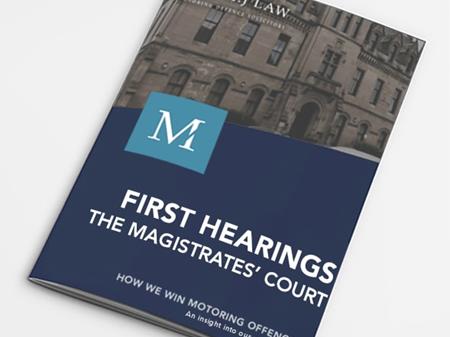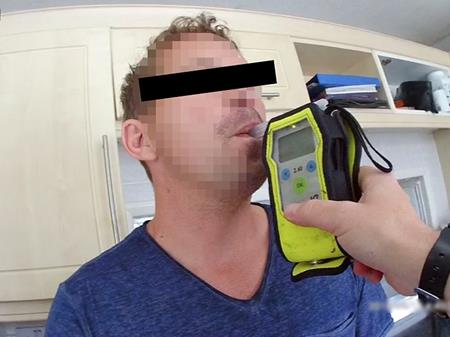Driving Licence revoked by the DVLA?
The DVLA is a separate body to the Police and Crown Prosecution Service. They have the power to take away your licence, without court proceedings. You can either accept this decision or you can fight back. This page discusses;
- DVLA Policy
- How to get the evidence
- Abstinence
- The appeal process
Has your driving licence been revoked by the DVLA?
The DVLA have wide powers under the Road Traffic Act 1988 to revoke a driving licence. If the DVLA is satisfied that a person is ‘suffering from a relevant disability’ they can revoke a licence with immediate effect. The persistent misuse, or dependency, on alcohol or drugs can amount to a relevant disability pursuant to the Motor Vehicles (Driving Licences) Regulations 1999.
The DVLA may require you provide evidence of abstinence from drinking or drug taking for at least 6 - 12 months.
Other reasons for licence revoking include having over 12 points on your license for dangerous driving, or for committing a serious driving offence, including drink driving or causing a death by driving.
DVLA Policy
The DVLA split alcohol and drug related cases into two categories;
- alcohol/drug misuse and;
- alcohol/drug dependency
In cases of persistent alcohol & drug misuse the DVLA will revoke your licence until a minimum 6 month period of abstinence (of drugs) or controlled drinking is achieved. In cases of dependency, the DVLA will revoke your licence or refuse an application until a minimum 12 month period of abstinence from drinking or drug taking is achieved. The DVLA will decide whether
The DVLA definition of misuse is as follows:
A state that causes, because of consumption of alcohol or drugs, disturbance of behaviour, related disease or other consequences likely to cause the patient, their family or society present or future harm and that may or may not be associated with dependence. (DVLA, ‘Assessing fitness to drive – a guide for medical professionals’)
The DVLA definition of dependency is:
A cluster of behavioural, cognitive and physiological phenomena that develop after repeated alcohol use, including a strong desire to take alcohol, difficulties in controlling its use, persistent use in spite of harmful consequences and with evidence of increased tolerance and sometimes a physical withdrawal state. (DVLA, ‘Assessing fitness to drive – a guide for medical professionals’)
DVLA disclosure in your case
The first step in challenging a case such as this is to obtain full disclosure of evidence from the DVLA. The DVLA should provide us with all the information used to make its decision.
Tip: You can apply for this disclosure by making a Subject Access Request direct to the DVLA. You can contact the relevant department using the details below;
DVLA SAR Enquiries
DVRE
DVLA
Swansea
SA6 7JL
SubjectAccess.Requests@dvla.gov.uk
How do I prove abstinence from alcohol to DVLA?
CDT - carbohydrate-deficient transferrin (applicable only to alcohol cases)
CDT tests are used to detect heavy alcohol consumption in blood. If you are attempting to show a period of abstinence or controlled drinking, you can arrange regular blood tests through your GP. However, your GP will not carry out CDT tests. These will have to be arranged by you on a privately paid basis. The CDT test results will be assessed using a traffic light system of green, amber and red which will correspond to a range of %CDT cut off levels for licensing purposes.
CDT cut off levels differ for drivers with a history of alcohol dependence or misuse. See the headings below for more information.
GREEN - %CDT = below 1.7%
A CDT level below 1.7% suggests no recent alcohol intake. This means that a CDT level up to and including 1.6% would be acceptable as evidence of there being no recent alcohol intake in someone classed as alcohol dependent.
RED - %CDT = 1.7% - 2.2% or more
A CDT level between 1.7% and 2.2% or more suggests recent excess alcohol intake.
A CDT level of up to 2.2% is acceptable as evidence of controlled drinking in someone with a previous history of alcohol misuse only. Otherwise the amber levels below would apply.
GREEN - %CDT = 2.2% or less
A CDT level of less than 2.2% or less is considered to be in the normal range. A person whose CDT level falls within this range is identified as consuming little or no alcohol and is compatible with licensing.
AMBER - %CDT = 2.3% - 2.9%
A CDT level between 2.3% and 2.9% is considered to be indicative of possible problematic alcohol consumption. A person whose CDT levels fall within this range is identified as someone who may drink to excess or binge drinks regularly and will trigger further enquiries with that person's general practitioner (GP) before a licensing decision is made.
RED - %CDT = 3% or more
A CDT level greater than 3% is considered to be indicative of alcohol consumption in a dependent manner. A person whose CDT levels fall within this range is identified as someone who is dependent on alcohol and a driving licence will be refused.
Regular blood or urine tests - (application to drink and drug cases)
If you case involves a substance other than alcohol, you can still attempt to show abstinence. Regular blood or urine tests can show whether there is any controlled substance in your system. Blood tests can be arranged through your GP and sent to a private facility. Urine kits can be purchased online and sent for testing. However, be aware that urine tests are less credible (because they're easier to falsify).
In addition to raising concerns about the evidence provided by the DVLA, it will be important to use additional evidence to support your claim that there is no ‘addiction/dependency’ on alcohol or drugs. This could include medical records and statements from others (family included). Doing this would also enable us to 'threaten' the DVLA with court action (see below) unless they reconsider the original decision to revoke.
Appeal against a DVLA decision in the Magistrates' Court
Negotiating with the DVLA to 'downgrade' the assessment
If there is obvious evidence of substance dependency, one option is to focus on downgrading the DVLA's assessment from dependency to persistent misuse. If the DVLA accept that you persistently misuse alcohol or drugs, it should only require 6 months of abstinence or controlled drinking rather than 12.
Next steps
M.A.J Law Ltd are a team of specialist driving defence solicitors. We've stood by clients for 10 years and successfully defended hundreds of prosecutions, often by using fine-tuned defence strategies. If you'd like to discuss your case or speak to a member of our team, please get in touch. We do not charge for our initial advice and we're often able to tell you within the first 10 minutes whether you have a defence.






